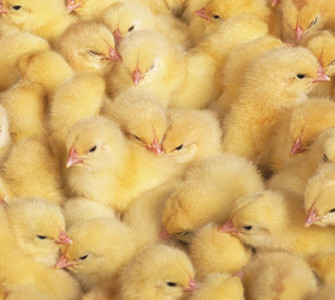ND is stable in US but poultry industry should be on lookout for evolving strains
Newcastle disease (ND) throughout most of the US remains stable, but the industry needs to be on guard for changes in the virus that may require adaption of ND vaccines, Guillermo Zavala, DVM, PhD, president, Avian Health International, cautioned in an interview with Poultry Health Today.
The ND strains circulating in most of the poultry-dense regions of the US are still the milder, lentogenic type that cause some respiratory and uniformity problems. They are nothing like the virulent form of ND that started in California backyard flocks, ultimately making its way to a few commercial flocks where it caused substantial losses.
For most US producers, managing ND requires protecting both boiler breeders and their progeny. Integrated companies need to vaccinate breeders intensively, but in doing so, the type of immunity stimulated is going to be transferred to the progeny. That makes it challenging to vaccinate the progeny without interference from the protection induced in the breeders, he said.
Main message
The main message is that “every time you design a vaccination program you have to think about both the breeders and the progeny,” Zavala said.
The majority of broilers in the US are vaccinated against ND once, in the hatchery. The exception would be broilers grown to around 60 to 62 days. In this case, flocks in an area where there is concern about an ND challenge may need to be vaccinated again in the field, he said.
The vaccination program has to be “aggressive enough to protect the birds but not [so much that] you would start causing noise in the production system. So those things are basic things to consider when you’re thinking about Newcastle disease prevention and control,” said Zavala, also an adjunct professor, University of Georgia.
He believes the US poultry industry is doing a good job managing ND but warned that although available vaccines protect well against the ND genotypes circulating in the US, “We have to really pay attention to the fact that the viruses are starting to slowly change on us, little by little, possibly making it necessary in the future to start adapting vaccines to optimize the protection that they provide.”
Rely on laboratory testing
Zavala emphasized the importance of relying on laboratory testing for proper diagnosis of ND and other diseases such as infectious bronchitis. “…your clinical experience, your expertise in good management and production practices, good ventilation, good environment, good animal welfare — all of that is of course very critical” because animals that are well cared for will fare better with any disease challenge.
“Now, having said that, it’s always very important to have in place very good biosecurity” to prevent possible disease outbreaks, he continued.
Economics has to be considered too, he added. “You would like to invest as much as necessary to protect the health and the welfare of animals. But at the same time, if you overdo it [by] vaccinating too much, perhaps you start paying a price that it’s not necessary to pay.”
Whether a poultry company is located in North America or in Southeast Asia, where ND is a bigger problem, producers need to adjust the intensity of their vaccination programs and their investment in biosecurity based on the ND risk, Zavala said.
Posted on July 13, 2020

















